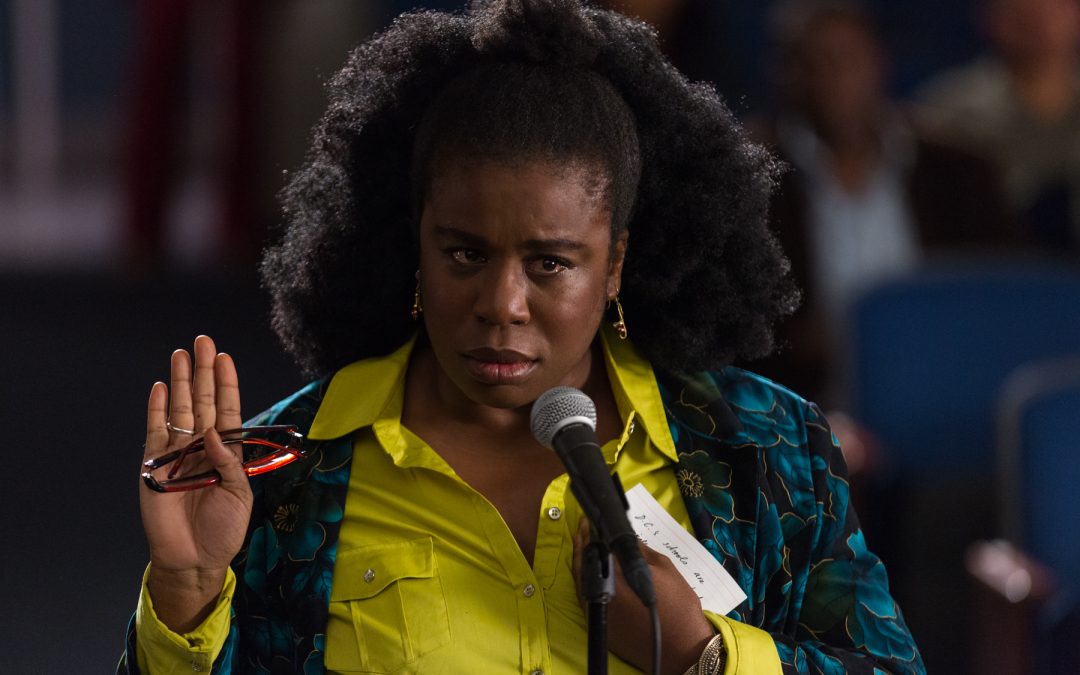Miss Virginia is based on the true story of Virginia Walden Ford, a struggling single mother (here played by Uzo Aduba) who’s afraid of losing her 15-year-old son James (Niles Fitch) to the negative influences of the Washington, D.C., streets. Unwavering and unwilling to see him drop out of school and deal drugs, she puts him in a private school, and then has to fight to keep him there due to her lack of financial resources. When she can’t afford tuition, she launches a movement to change the system that’s hurting him and thousands of other low-income students. Attacked and threatened by those who don’t want change — from corrupt politicians to the local drug lord, who feels threatened by her for wanting positive change in the community — Virginia must dig deep to muster more strength than she ever knew she had. And she won’t be able to do it without the help of an unexpected ally, Congressman Cliff Williams (Matthew Modine).
The Emmy-winning Aduba does a good job playing a mother who’s full of conviction, love for her community, and unflagging energy to advocate for better education in inner-city communities. Fitch, as Virginia’s idealistic and impressionable son James, is believable in his role, and he has a natural innocence that resonates on-screen. Modine steps into Williams’ shoes with ease; he’s convincing as a privileged politician who’s disconnected from the inner city but has a heart for change. That said, under R. J. Daniel Hanna’s direction, many of the scenes are predictable, and the screenwriting lacks in-depth cultural nuance. Some of the depictions of Black female characters feel stereotypical and caricature-like in terms of depicting what a strong, Black female or mother is “supposed” to be. (Spoiler alert: There’s a scene in which Virginia forces her way onto a posh golf course at an exclusive country club. Williams asks her how she was able to get in, and her rebuttal is, “I told him that I was the maid.”) Many of the movie’s punchlines are redundant, and moments that could have been genuinely sweet and endearing are overlooked or stifled.
But there are many positive themes in Miss Virginia, including finding the courage to stand up against legislation, maintaining unity while mobilizing a community, asking for help and support when it’s needed, persevering even when you appear to be the underdog, and fighting for the next generation to have access to quality education. The movie doesn’t present Virginia as a victim, but rather as a victor; she’s a relatable example of what many hardworking parents have to endure and overcome for their children’s sake (in this case, scrub toilets at a second job so she can earn the extra income needed for James’ tuition). Plus, this film does a great job of showing the resource disparity between private schools and public schools in disenfranchised communities that lack support. There’s positive representation of diverse educators of color who are committed to their students’ education regardless of what the education system does or doesn’t provide.
For a more in depth review of this film, find Lynnette’s review for Common Sense Media here.


Recent Comments